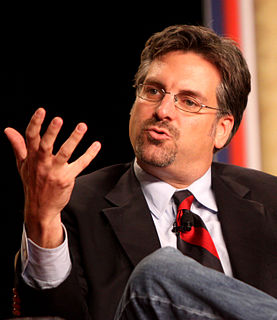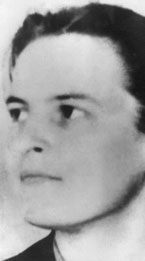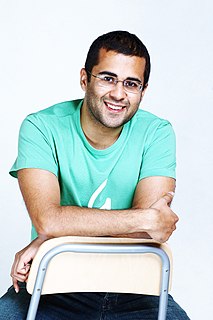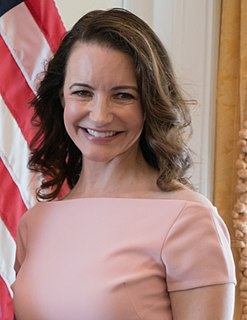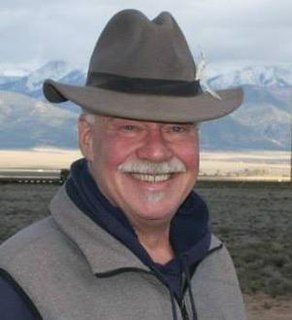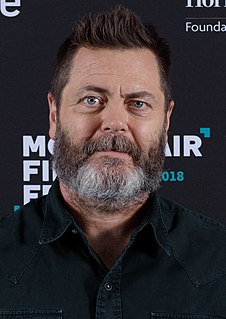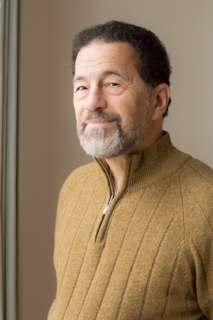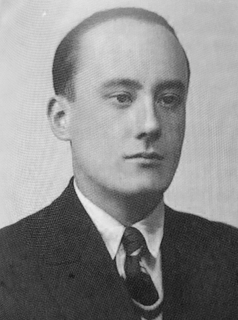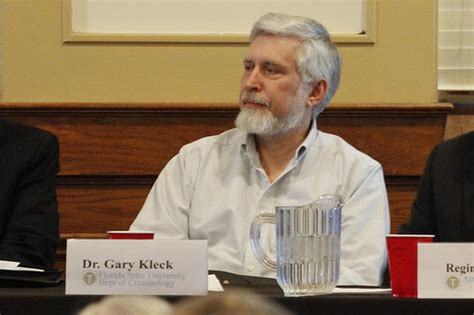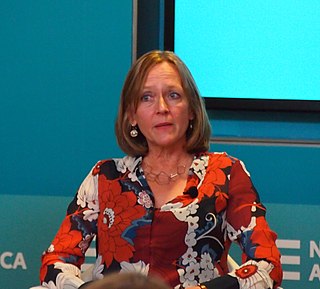Top 1157 Academic Quotes & Sayings - Page 19
Explore popular Academic quotes.
Last updated on November 26, 2024.
We academic scientists move within a certain sphere, we can go on being useless up to a point, in the confidence that sooner or later some use will be found for our studies. The mathematician, of course, prides himself on being totally useless, but usually turns out to be the most useful of the lot. He finds the solution but he is not interested in what the problem is: sooner or later, someone will find the problem to which his solution is the answer.
For many years I had been deeply identified with thinking and the painful, heavy emotions that had accumulated inside. My thought activity was mostly negative, and my sense of identity was also mostly negative, although I tried hard to prove to myself and to the world that I was good enough by working very hard academically. But even after I had achieved academic success, I was happy for two weeks or three and then the depression and anxiety came back.
The shift from the perception of the child as innocent to the perception of the child as competent has greatly increased the demands on contemporary children for maturity, for participating in competitive sports, for early academic achievement, and for protecting themselves against adults who might do them harm. While children might be able to cope with any one of those demands taken singly, taken together they often exceed children's adaptive capacity.
Feminism as a movement for political and social equity is important, but feminism as an academic clique committed to eccentric doctrines about human nature is not. Eliminating discrimination against women is important, but believing that women and men are born with indistinguishable minds is not. Freedom of choice is important, but ensuring that women make up exactly 50 percent of all professions is not. And eliminating sexual assaults is important, but advancing the theory that rapists are doing their part in a vast male conspiracy is not.
A child blind from birth doesn't even know he's blind until someone tells him. Even then he has only the most academic idea of what blindness is; only the formerly sighted have a real grip on the thing. Ben Hanscom had no sense of being lonely because he had never been anything but. If the condition had been new, or more localized, he might have understood, but loneliness both encompassed his life and overreached it.
In that sense, Obama is America's first postmodern president. If his predecessors tended to see the world in terms of good and evil, Obama sees the world in terms of victims and victimizers - with the United States often in the role of victimizer. In that view, long favored by the academic left that shaped a young Barack Obama, American foreign policy is one long train of abuses, marked by casual aggression and eager imperiousness.
Character grows in the soil of experience with the fertilization of example, the moisture of ambition, and the sunshine of satisfaction. Character cannot be purchased, bargained for, inherited, rented or imported from afar. It must be home-grown. Purely intellectual development without commensurate internal character development makes as much sense as putting a high-powered sports car in the hands of a teenager who is high on drugs. Yet all too often in the academic world, that's exactly what we do by not focusing on the character development of young people.
...if use is not an appropriate criterion for decision making in the academic life, what is? Love. ...The virtues of love as a criterion for choosing a college major...it is not pretentious. "Use" is pretentious because it claims to know something about the future that it doesn't really know. Love is immediate... [love] guarantees that you will work to your highest potential...it is part of who you are, and not just something you think, often wrongly, that you can use.
For ten years, I wrote regular columns about science for women's magazines, and to my knowledge I'm the only person in the world who can say that. This has no kudos in either the science-writing world or the academic world, but it's one of the most challenging things I've ever done. It's much harder to write about cosmology for a magazine like Vogue than for the New York Times, which I've also written for, because you have to imagine that on the page opposite there'll be an advertisement for eyeliner, or an article about the latest trends in skirt length.
I was a lousy academic. I spent most of my time in the cafeteria. But I met fantastic people from all kinds of fields; law, medicine, history, and they eventually dispersed all over the world to do their fieldwork. I liked the way these people committed to the long term in a sincere, visionary way. Their projects weren't about "next season." They were ten-year commitments. They were lifestyle choices that had traditions of fieldwork built into them - moving around, living on location, discipline, a real rigor for research.
The denial of any distinction between foreseen and intended consequences, as far as responsibility is concerned, was not made by Sidgwick in developing any one 'method of ethics'; he made this important move on behalf of everybody and just on its own account; and I think it plausible to suggest that this move on the part of Sidgwick explains the difference between old-fashioned Utilitarianism and the consequentialism, as I name it, which marks him and every English academic moral philosopher since him.
The work on satisfactory formulation of technical patents was a true blessing for me. It compelled me to be many-sided in thought, and also offered important stimulation for thought about physics. Following a practical profession is a blessing for people of my type. Because the academic career puts a young person in a sort of compulsory situation to produce scientific papers in impressive quantity, a temptation to superficiality arises that only strong characters are able to resist.
Churchmen are quick to defend religious freedom; lawyers were never so universally aroused as by President Roosevelt's Court bill; newspapers are most alert to civil liberties when there is a hint of press censorship in the air. And educators become perturbed at every effort to curb academic freedom. But too seldom do all of these become militant when ostensibly the rights of only one group are threatened. They do not always react to the truism that when the rights of any individual or group are chipped away, the freedom of all erodes.
According to, for example, one academic by the name of Philip Harvey, whose expertise is basically how do we create a New Deal, today. According to his estimate, these jobs could be created for far less than the [Barack] Obama stimulus package, which cost, you know, $700 or $800 billion, something like that, and produced around 3 million jobs - not a lot. According to his estimates, it would cost less to produce two-thirds of 20 million.
I know that my music is heard a lot in commercial circles. In academia, I think my music is taken in differently but I'm not sure why that is. Some kind of sixth sense tells me that people in that world are thinking differently about it. I don't know if it has to do with the structure of my music, which is probably more apparent to those in the academic world than it is in the commercial world, where people tend not to think of that aspect of music so much. They just listen for pure enjoyment.
Something else an academic education will do for you. If you go along with it any considerable distance, it will begin to give you an idea what size mind you have. What’ll fit and, maybe, what it won’t. After a while, you’ll have an idea what kind of thoughts your mind should be wearing. For one thing, it may save you an extraordinary amount of time trying on ideas that won’t suit you, aren’t becoming to you. You’ll begin to know your true measurements and dress your mind accordingly.
Most Chinese filmmakers grew up watching television; they watched films on television, not in cinemas. The scope of their vision is not big enough, they're not yet detail-oriented enough. You have to watch films in cinemas for years to understand the depth and scope of vision needed in filmmaking. Directors in China usually come from an academic background; they graduate as film directors. Whereas the directors from Hong Kong learn their trade on sets, beginning at the lowest rung.
Historians of a generation ago were often shocked by the violence with which scientists rejected the history of their own subject as irrelevant; they could not understand how the members of any academic profession could fail to be intrigued by the study of their own cultural heritage. What these historians did not grasp was that scientists will welcome the history of science only when it has been demonstrated that this discipline can add to our understanding of science itself and thus help to produce, in some sense, better scientists.
Nature designed with a random set of genes and circumstances in which we were born. To be happy, we have to accept it and make the most of nature’s design. Are you? Goals will help you do that. I must add, don’t just have career or academic goals. Set goals to give you a balanced, successful life. I use the word balanced before successful. Balanced means ensuring your health, relationships, mental peace are all in good order.
The clerical work is par for the course. "Keep on file in numerical order" means throw in wastebasket. You'll soon learn the language. "Let it be a challenge to you" means you're stuck with it; "interpersonal relationships" is a fight between kids; "ancillary civic agencies for supportive discipline" means call the cops; "Language Arts Dept." is the English office; "literature based on child's reading level and experiential background" means that's all they've got in the Book Room; "non-academic-minded" is a delinquent; and "It has come to my attention" means you're in trouble.
I've been acting since I was ten years old. I had two lines in Snow White and the Seven Dwarves at the community theater I was very focused and I loved it. My parents believed in the arts and being well rounded. So I played piano and violin, I danced and acted. They never thought I would go into acting though. They just wanted a well-rounded child and it was a bit of a shock to my dad when I said "I want to go to acting school" because he is a psychology professor and was thinking of something more academic.
One thing should be put firmly. Where people have commented on that novel [The Paper Men], they generally criticize the poor academic, Rick L. Tucker, who is savaged by the author, Wilfred Barclay. I don't think people have noticed that I have been far ruder about Barclay than I have been about Tucker. Tucker is a fool, but Barclay is a swine. The author really gets his come-uppance.
The love of money is the root of all evil. That is the fundamental truth that I have verified through 3 decades of empirical, investigative, legal, academic research trying to answer some fundamental questions about human existence and why we behave the way we do, why we think the way we do, why we act the way we do...It is the love of money that has the potential to exterminate- to render extinct- the entire human race.
In high school, I had fun in my academic clubs, watching movies with my girlfriends, learning Latin, having long, protracted, unrequited crushes on older guys who didn’t know me, and yes, hanging out with my family. I liked hanging out with my family! Later, when you’re grown up, you realize you never get to hang out with your family. You pretty much have only eighteen years to spend with them full time, and that’s it.
I drifted into a career in academic philosophy because I couldn't see anything outside the academy that looked to be anything other than drudgery. But I wouldn't say I 'became a philosopher' until an early mid-life crisis forced me to confront the fact that, while 'philosophy' means 'love of wisdom', and 'wisdom' is the knowledge of how to live well, the analytic philosophy in which I had been trained seemed to have nothing to do with life.
Under the discipline of unity, knowledge and morality come together. No longer can we have that paltry 'objective' knowledge so prized by the academic specialists. To know anything at all becomes a moral predicament. Aware that there is no such thing as a specialized effect, one becomes responsible for judgments as well as facts. Aware that as an agricultural scientist he had 'one great subject,' Sir Albert Howard could no longer ask, What can I do with what I know? without at the same time asking, How can I be responsible for what I know?
While you are walking you would learn much more about filmmaking than if you were in a classroom. During your voyage you will learn more about what your future holds than in five years at film school. Your experiences would be the very opposite of academic knowledge, for academia is the death of cinema. It is the very opposite of passion.
Personally I get so much of my inspiration from women in other countries, so I don't feel like American women are the leaders and I don't agree with the notion that Americans can accomplish more or do more. But I do think that what we can uniquely do here in America is mobilize and galvanize a lot of these ideas and resources. It's a war of ideas. We, Islamic women, are very well supported in this country by institutions, academic and nonprofit, that are already in the field endorsing women's rights and tolerance. The women in other communities have been the pioneers in this work.
I would say the only one person I know of who kind of combines the elements that my father brought to the table in terms of affecting the public discourse would be Oliver Stone. His combination of academic brilliance and real life experience and just understanding people I think is what makes him such a great storyteller, but also he cares. He is interested. He meets somebody and he listens to them. He has some questions. He wants to know what they're about. And as a result I think his worldview is much more complex and whole and most of the other.
And there was, in those Ipswich years, for me at least, a raw educational component; though I used to score well in academic tests, I seemed to know very little of how the world worked and was truly grateful for instruction, whether it was how to stroke a backhand, mix a martini, use a wallpaper steamer, or do the Twist. My wife, too, seemed willing to learn. Old as we must have looked to our children, we were still taking lessons, in how to be grown-up.
As you consider whether to move a child into formal academic training, remember that we want our children to do more than just learn how to read and write; we want them to learn in such a way that they become lifelong readers and writers. If we push our children to start learning these skills too far ahead of their own spontaneous interest and their capacity, we may sacrifice the long-range goal of having them enjoy such pursuits.
When I [first] went to university, I was doing foreign languages, because I had done them since I was 13 years old. I had done French and German. I picked up Italian, just sort of blasted through the exams, [and then] took off overseas, because I wanted to be an actor. I thought, "I'm just not academic." I'm not very competitive, in terms of acting. But since going back to university, I've realized, I am highly competitive.
I was not one of those people who wanted to be a comedian when I was growing up. I liked comedy, but didn't know it was something you could do for a living. I actually wanted to be an attorney. I did do things on the side like improv and sketch comedy, but law was my focus. I was a very bookish, academic kid. When I got out of college, I was really unhappy. I had a great job that I should have loved, yet I was miserable. I slowly realized that was because I wasn't performing. So I just tried stand-up and fell in love with it after one performance.
My literary criticism has become less specifically academic. I was really writing literary history in The New Poetic, but my general practice of writing literary criticism is pretty much what it always has been. And there has always been a strong connection between being a writer - I feel as though I know what it feels like inside and I can say I've experienced similar problems and solutions from the inside. And I think that's a great advantage as a critic, because you know what the writer is feeling.
Most of the time, teachers who talk about the Middle East do not know the history, culture or present context of the problems they are discussing. So they go to the media, which quote government or academic "experts" (who often are no such thing) or journalists who, by virtue of working for the media, are supposed to know what they are talking about. In the end they know little or nothing beyond a standard line that reflects the perceptions of the US government and its special-interest supporters. That is what the students get. Indeed, that is what we all get.
Economists operate with this image of the homo economicus, the rational economic agent, and while such agents are rare in the wider world, they are common in economics departments. Exemplifying the homo economicus paradigm, economists typically choose their research projects and hypotheses so as to promote their own careers, to maximize their lifetime income. This explains the astonishing pressures toward conformity in academic economics: how deviant views (except those by a few who have already achieved stardom) get crushed by an army of conformists.
To call oneself a libertarian marxist today is not to look backwards but to be committed to the future. The libertarian marxist is not an academic but a militant. He is well aware that it is up to him to change the world - no more, no less. History throws him on the brink. Everywhere the hour of the socialist revolution has sounded. Revolution - like landing on the moon - has entered the realm of the immediate and possible. Precise definition of the forms of a socialist society is no longer a utopian scheme. The only utopians are those who close their eyes to these realities.
Educators, long disturbed by schoolchildren's lagging scores in math and reading, are realizing there is a different and more alarming deficiency: emotional literacy. And while laudable efforts are being made to raise academic standards, this new and troubling deficiency is not being addressed in the standard school curriculum. As one Brooklyn teacher put it, the present emphasis in schools suggests that "we care more about how well schoolchildren can read and write than whether they'll be alive next week."
There was no real strategic decision about editorial tone. It was kind of a write whatever you want to write, and we'll see how it goes. I think that we lucked out in that all of the women who started writing at Feministing.com were really funny, and I don't think that's something people are used to seeing or hearing when they read feminism. You know, you think feminism and you kind of think academic, women's studies, dry, humorless; there are all of these stereotypes that go along with what feminist thought is and what feminist writing is.
The task of all Christian scholarship—not just biblical studies—is to study reality as a manifestation of God’s glory, to speak and write about it with accuracy, and to savor the beauty of God in it, and to make it serve the good of man. It is an abdication of scholarship when Christians do academic work with little reference to God. If all the universe and everything in it exist by the design of an infinite, personal God, to make his manifold glory known and loved, then to treat any subject without reference to God’s glory is not scholarship but insurrection.
In college, in the early 1950s, I began to learn a little about how science works, the secrets of its great success, how rigorous the standards of evidence must be if we are really to know something is true, how many false starts and dead ends have plagued human thinking, how our biases can colour our interpretation of evidence, and how often belief systems widely held and supported by the political, religious and academic hierarchies turn out to be not just slightly in error, but grotesquely wrong.
I wonder whether I might have meant "terrify us" but perhaps as well there was a less than conscious effort to show that the suppression of debate about Palestine and about the Boycott, Divestment, and Sanctions movement - within many academic circles - does seek to establish those who would address such issues in speech as already collaborating with "terrorist" regimes, although now only Hamas is officially terrorist according to the US government and its allies.
What initially attracted me to The Seventh Seal was that it had values and characteristics which I was familiar with in other art forms, most notably, the European novel and certain forms on English drama, and indeed, in relation to my rather academic interest in history -- not "history" in the normal sense, but history as a form of entertainment . It might be a very unfashionable view but I believe that history is an amazing bank or reserve area of plots, characterisations, extraordinary events, etc.
Phil Gramm had a stump speech about how his mother's devotion kept him from being an academic failure in life. She got him into a special school that turned him around - under a government program for the children of deceased veterans. He was repeatedly asked at press conferences why he would then turn around and support draconian cuts in federal funding for education. He never had an answer.
We must protect each other against the attacks of those self-appointed watchdogs of patriotism now abroad in the land who irresponsibly pin red labels on anyone whom they wish to destroy. ... [Academic professionals are the only person competant to differentiate between honest independents and the Communists.] This is our responsibility. It is not a pleasant task. But if it is left to outsiders, the distinction is not likely to be made and those independent critics of social institutions among us who are one of the glories of a true university could be silenced.
I buy stocks when they are battered. I am strict with my discipline. I always buy stocks with low price-earnings ratios, low price-to-book value ratios and higher-than-average yield. Academic studies have shown that a strategy of buying out-of-favor stocks with low P/E, price-to-book and price-to-cash flow ratios outperforms the market pretty consistently over long periods of time.
Most important, [research on affirmative action] has completely failed to show that affirmative action ever closes the academic gap between minorities and whites. And failing in this, affirmative action also fails to help blacks achieve true equality with whites - the ultimate measure of which is parity in skills and individual competence. Without this underlying parity there can never be true equality in employment, income levels, rates of home ownership, educational achievement and the rest.
It's very interesting to read why Cornelius Cardew became disenchanted with academic avant-garde music. He wanted to reach as many people as possible and change their consciousness. He wanted to reach the "working classes" in England. The kind of music he was making was very much from the academy, even though it had a lot in common with things like free jazz and improvisation, and he felt that it was the music of the elite, and that he wasn't really speaking to the people.
When the students were asked to identify their race on a pretest questionnaire, that simple act was sufficient to prime them with all the negative stereotypes associated with African Americans and academic achievement. If a white student from a prestigious private high school gets a higher SAT score than a black student from an inner-city school, is it because she’s truly a better student, or is it because to be white and to attend a prestigious high school is to be constantly primed with the idea of “smart”?
The Common Core State Standards Initiative is an important step forward in ensuring that the United States remains competitive in the global economy. Career technical education (CTE) shares the Initiative s goal that all students must be college and career ready. CTE programs that incorporate the Common Core Standards will ensure students have the academic and technical knowledge and skills to be successful in the 21st century workplace.
With the states release today of a set of clear and consistent academic standards, our nation is one step closer to supporting effective teaching in every classroom, charting a path to college and careers for all students, and developing the tools to help all children stay motivated and engaged in their own education. The more states that adopt these college and career based standards, the closer we will be to sharing innovation across state borders and becoming more competitive as a country.
Film theory has nothing to do with film. Students presumably hope to find out something about film, and all they will find out is an occult and arcane language designed only for the purpose of excluding those who have not mastered it and giving academic rewards to those who have. No one with any literacy, taste or intelligence would want to teach these courses, so the bona fide definition of people teaching them are people who are incapable of teaching anything else.
The difference between prose logic and poetic thought is simple. The logician uses words as a builder uses bricks, for the unemotional deadness of his academic prose; and is always coining newer, deader words with a natural preference for Greek formations. The poet avoids the entire vocabulary of logic unless for satiric purposes, and treats words as living creatures with a preference for those with long emotional histories dating from mediaeval times. Poetry at its purest is, indeed, a defiance of logic.
John Lott has done the most extensive, thorough, and sophisticated study we have on the effects of loosening gun control laws. Regardless of whether one agrees with his conclusions, his work is mandatory reading for anyone who is open-minded and serious about the gun control issue. Especially fascinating is his account of the often unscrupulous reactions to his research by gun control advocates, academic critics, and the news media.
[Wendy] Davis [pursued] higher education, as her campaign website says, with 'the help of academic scholarships, student loans, and state and federal grants.' Now that she is in a high-profile and hotly partisan race, it has come out that she also benefited from the moral and financial support of her second - now ex - husband. In the process, though, behavior we would expect and hardly notice in a man is being portrayed as freakish and problematic in a woman.
Until the Left took over American public education in the second half of the 20th century, it was generally excellent - look at the high level of eighth-grade exams from early in the 20th century and you will weep. The more money the Left has gotten for education - America now spends more per student than any country in the world - the worse the academic results. And the Left has removed God and dress codes from schools - with socially disastrous results.
Academic environments are generally characterised by the presence of peole who claim to understand more than in fact they do. Linguistic Philosophy has produced a great revolution, generating people who claim not to understand when in fact they do. Some achieve great virtuosity at it. Any beginner in philosophy can manage not to understand, say, Hegel, but I have heard people who were so advanced that they knew how not to understand writers of such limpid clarity as Bertrand Russell or A.J. Ayer.
I've come to the conclusion that it's all about fear- fear that your kid won't come out on top, be a success. Forcing him into these brutal encounters will a) make a dame sure he is a success, and b) all you to see evidence of that success with the added bonus of a cheering crowd. This means that sports are supported with an almost desperate enthusiasm. The football team gets catered dinners before a fame. Honor Society is lucky if it gets a cupcake. Academic success-forget it. That requires too much imagination. There's no scoreboard.





